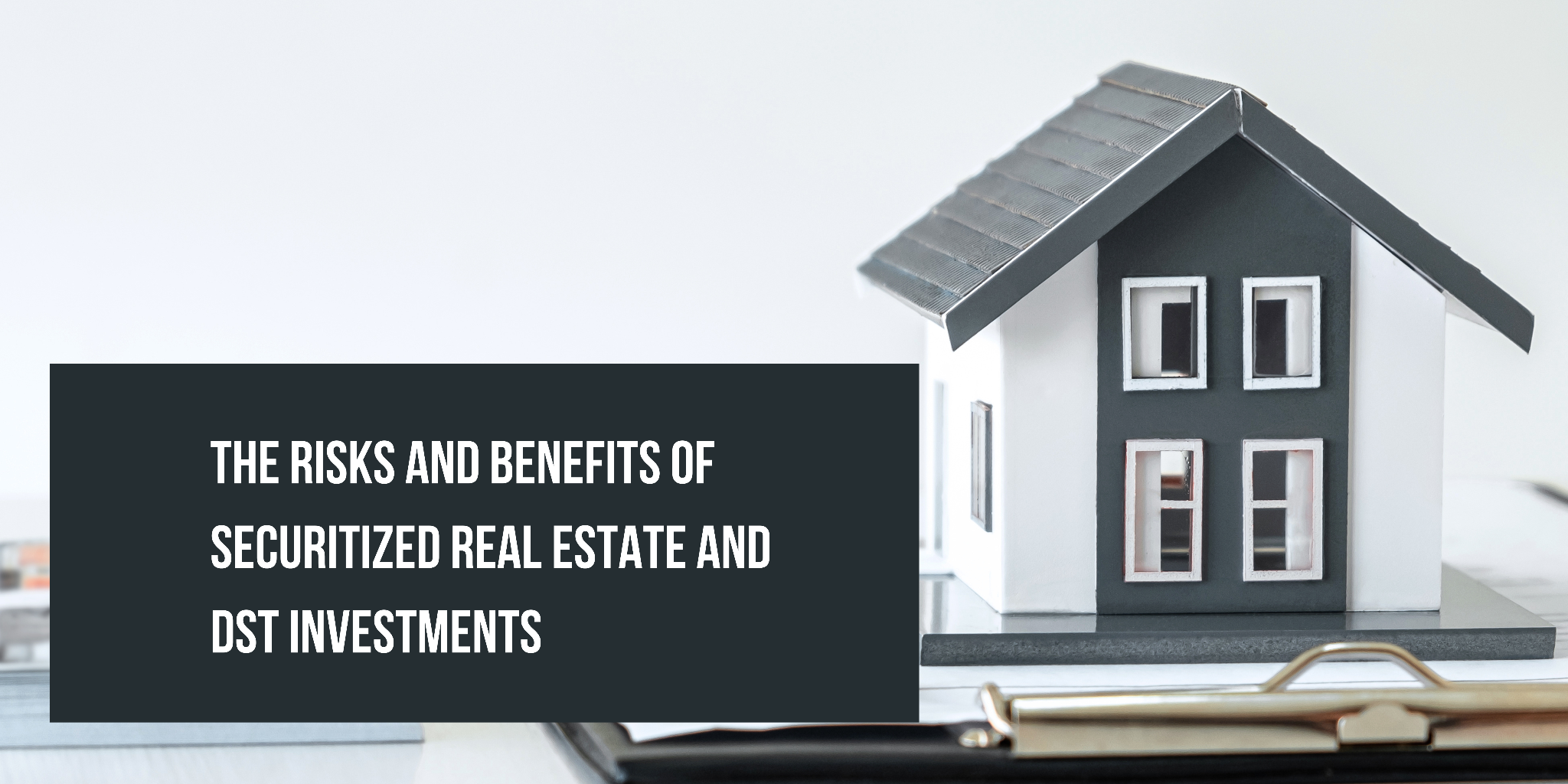Trawnegan Gall On The Risks and Benefits of Securitized Real Estate and DST Investments
What are Securitized Real Estate Investments?
Securitized real estate is a property(ies) that is marketed and sold as a security asset, which is regulated by U.S. securities law. Packaging real estate transactions as a security under federal securities regulations requires full disclosure and increased due diligence, which aides in identifying suitable Real Estate Investments. There are a variety of securitized real estate structures, real estate investment trusts, Delaware Statutory Trusts, limited liability companies, limited partnerships and opportunity zone funds/REITs. Among these structures only the DST structure is viable as “like kind” property for 1031 exchange.
What are some of the benefits of Investing in Securitized Real Estate?
- A passive investment–a securitized real estate investment will typically not require any participation of the investor, allowing them to focus on their primary occupation, family or retirement.
- Institutional quality real estate–A securitized real estate investment allows investor/exchangers to own a piece of a much larger, more costly piece of real estate than they could ever own or access on their own.
- The protections of securities law and the services of a securities broker.
What are some of the Risks of Investing in Securitized Real Estate?
- All of the risks of any given investment will be detailed in the private placement memorandum or prospectus of the offering and should be reviewed in their entirety by the investor.
- Real estate risks–a securitized real estate investment will entail all the same real estate risks as direct ownership of real estate, occupancy, rental rates, leases and tenants, market and submarket factors, cap rate expansion, etc. but these risks are common to all real estate investments and are not specific to securitized real estate investments.
- Lack of control–the investor/exchanger will typically not have any vote or discretion regarding the management, leasing, financing, renovating or selling the property. This risk makes the choice of sponsor very important.
- Fees and expenses–inherent in a securitized real estate investment will be significant fees and expenses, all of which are detailed in the offering materials. Among other matters these fees will cover additional due diligence, property and asset management, accounting and investor relations.
What Does Due Diligence Entail in Securitized Real Estate Investment?
There are multiple areas of detailed due diligence conducted by several parties upon a securitized real estate investment:
- Due diligence is conducted by the sponsor, the lender if applicable, the broker dealer, the securities broker, and typically a 3rd party due diligence firm. Only if an offering passes muster will it be approved by a broker-dealer for presentation to investors.
- Evaluating the property: including the physical property itself, property management, market analysis, and tenant profile.
- Vetting the sponsor: including background, expertise, key personnel, and financial position
- The structure of the investment deal including all of its documentation: purchase contract, deed, environmental report, loan documents, management agreements, trust agreement, etc.
- The financial projections of the property. A securitized real estate investment, while entailing substantial risks should be judged to have a very good probability of achieving its financial goals based upon a fair evaluation of the financial and market potential of the property.
What is a Delaware Statutory Trust (DST)?
A Delaware Statutory Trust (DST) is an entity established according to Delaware law to serve as a trust that holds 100 percent of the ownership interest in a real estate asset. Specifically, according to IRS Revenue Ruling 2004-86, a beneficial interest in a properly structured DST is considered “like-kind” property for 1031 exchange. Over 90% of investment capital which comes into DST offerings comes in via 1031 exchange, and a beneficial interest in a DST is also viable for 1031 exchange on the back end, i.e., the exchanger can exchange out of a DST and into any viable like-kind property.
In a DST investment, participants do not have a separate interest as a co-owner of the asset. Rather each investor obtains an interest in the trust which in turn owns the property directly. Investors have limited liability for the real estate asset(s) that support the trust. They also are not directly involved in oversight of the property. The rights of the beneficial interest holder, which include the right to their pro-rata share of the income of the property and their pro-rata share of net equity sale proceeds, are defined in the trust agreement.
The common profile of a DST investor is a real estate investor at or near retirement age who has accumulated substantial capital appreciation in their investment property and who, thus, would benefit greatly from the tax deferral of 1031 exchange. They also seek to retire from active management of real estate. Exchanging out of their traditional property into a DST allows them to avail of the benefits of 1031 exchange, retire from active management, and enjoy the benefits of DST ownership, including potential cash flow income and appreciation potential.
About Trawnegan Gall
Trawnegan Gall is the Senior Vice President of Cornerstone Real Estate Investment Services in Dallas, Texas. A senior vice president at Cornerstone, Mr. Gall serves a national clientele, brokering and advising regarding a variety of securitized real estate offerings and specializing in DSTs. Mr. Gall has brokered more than $400 million of equity into real estate securities. He is the co-author of Modern Real Estate Investing, the Delaware Statutory Trust, and one of the field’s strongest proponents of industry best practices.
